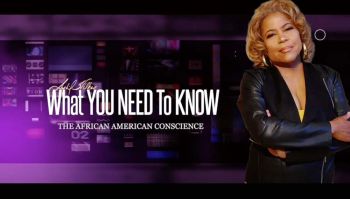A Love Letter To Rock & Roll Hall Of Famers Salt-N-Pepa
Salt-N-Pepa Didn’t Just Make Music — They Made Room For Black Women To Be Heard: A Love Letter
Giving flowers to Hip-Hop’s original it girls.
Share the post
Share this link via
Or copy link

Dear Salt-N-Pepa,
We’re toasting to you Salt, Pepa, and Spinderella, our newest Rock and Roll Hall of Famers! Thank you for reminding the world what it looks like when women in hip-hop take their rightful place in history.
Before any of us knew what confidence sounded like, it already had your rhythm.
You ladies were the beat behind every girl who learned to walk into a room like she owned it, the echo that told us our voices could move crowds long before algorithms ever did.
I grew up hearing “Push It” and “Shoop” in the background of my childhood, songs that felt like sunshine in a speaker. My mom would light up every time they came on. When I told her I was writing a love letter to Salt-N-Pepa, she smiled before I could even finish the sentence. To her, you were more than music. You were a mirror, proof that Black women could be bold, beautiful, and in charge of their own narrative.

“They totally impacted my life and my style in high school,” she told me. “They’re the reason I started wearing ripped jeans with leather jackets. Me and my friends made dance routines at parties because of them. They just made being a girl in hip-hop cool.”
Her stories painted the picture of what you meant to her generation, women being seen, heard, and hyped up at the same time.
RELATED CONTENT: For The Women Who Are Never Allowed to Fall Apart: A Love Letter
Owning Voice Before the Mic Was Ready
When you told us to “Push It,” you weren’t just talking about music, you were talking about possibility.

You flipped sexuality from taboo to tool, choosing agency instead of apology. “Shoop” wasn’t just flirtation, it was freedom.
According to the Rock & Roll Hall of Fame, your 2025 induction celebrates a group that “broke barriers for women in hip-hop and redefined pop culture.”
But for those of us who came after, it’s deeper than the plaques and performances. It’s the confidence that found its way into our reflection every time we said something out loud that scared us, and did it anyway.
Your confidence became a blueprint we study in real time every time Megan Thee Stallion spits a verse that demands respect, when Cardi B raps like she owns her story, or when Latto reminds us that confidence can coexist with femininity and finesse.
Crossing Over and Kicking Doors Down
You didn’t just change the sound of hip-hop, you changed what womanhood looked like inside it.
According to Cornell University’s Preserving Hip-Hop History Project, you entered an arena built for men and turned it into a movement for all of us. When the mic felt heavy with competition, you lifted it with confidence. You made success look possible and power look natural. In WERs, y’all are stamped as the first all-female rap act to go gold, then platinum, and the first to win a Grammy for Best Rap Performance by a Duo or Group.
But it wasn’t just the music; it was the mirror you held up to the culture. Vogue recalls the way your fashion told its own story, from oversized eight-ball leather jackets and color-blocked tracksuits to thigh-high boots that dared to mix streetwear with sensuality. Essence captured it best, describing bamboo earrings, cropped leather jackets, bold haircuts, and an aura that made confidence an accessory.
Every look was a lyric. Every jacket, every curl, every shoulder pad said we belong here. You weren’t asking for space, you were designing it. You didn’t just cross over, you crossed barriers; doing it with a smile that said, “watch us.”
You reminded women that being seen was not the same as being defined, and that our visibility could be our victory. Through your voice and your vision, you made being feminine in hip-hop a power move, not a compromise.
The Business Before the Bag
Before “brand deals” had hashtags, you were negotiating tours, shaping images, and owning the kind of influence we now measure in clicks. You showed that women could lead in boardrooms as easily as they led on stage.
Consider this: a Pitchfork study of popular music found that only 12.3% of hip-hop and rap songs between 2012 and 2019 were performed by women. Another report from Billboard noted that across a 12-year sample, women artists were least likely to work in hip-hop at just 14.9%. The field you entered was clearly structured for men, but you showed up anyway.
The landscape still isn’t equal. According to the Annenberg Inclusion Initiative at the University of Southern California, women held only 18.9% of songwriter credits and just 5.9% of producer credits in 2024, proof that the business side remains overwhelmingly male-dominated. Yet artists like you are part of the growing legacy shifting those numbers, paving the way for a future where women won’t just participate in hip-hop—they’ll define it.
Your boldness told an entire generation that being outspoken didn’t mean being out of place. In an industry that often profits from our image but fears our voice, you proved that authenticity pays. Every contract a woman creative signs, every product line they launch, every entrepreneurial leap they take, it all traces back to the women who made it okay to say, “I deserve to get paid for this.”
Signed with Love, From the Generation You Raised
You taught us that confidence could be choreography, that friendship could be a business model, and that femininity was never fragile: it was fireproof.
So as you stand in the Rock & Roll Hall of Fame, know that your rhythm still pulses through ours.
With love, gratitude, and the same gold-chain confidence you handed us,
MadameNoire
P.S.: Happy belated birthday to Sandra “Pepa” Denton!
RELATED CONTENT: Brandy, A Love Letter — To The Woman Who Chose Herself, Even When The World Wanted A Show
The post Salt-N-Pepa Didn’t Just Make Music — They Made Room For Black Women To Be Heard: A Love Letter appeared first on MadameNoire.
Salt-N-Pepa Didn’t Just Make Music — They Made Room For Black Women To Be Heard: A Love Letter was originally published on madamenoire.com











